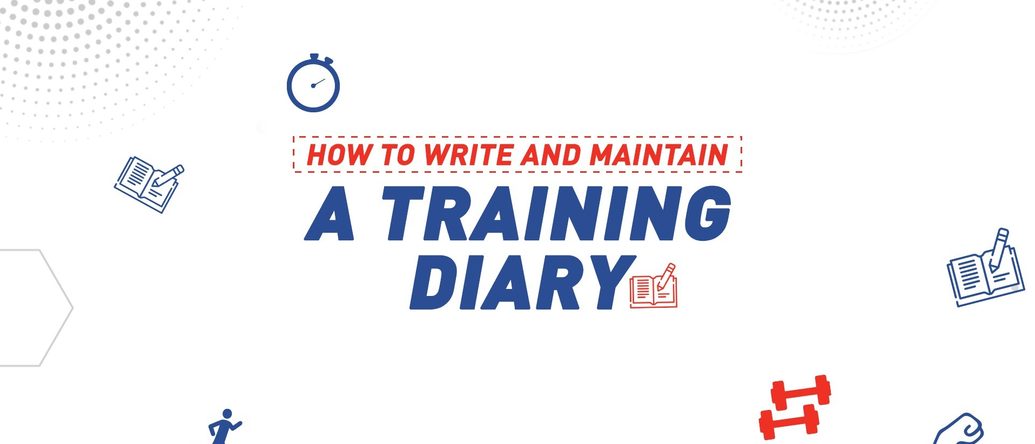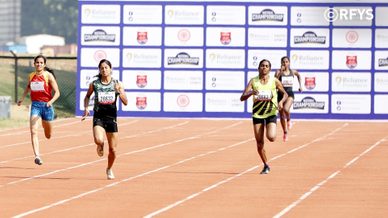How to Write a Training Diary
The mental wellness of an athlete is crucial for his/her athletic performance. It is important that they train their minds as well as their bodies and learn techniques that can help them stay motivated, focus better, and develop a strong mind-body connection. In this webinar of the RFYS Athletics Development Series, Maithili Bhuptani, Lead Sport & Exercise Psychologist at Sir H.N. Reliance Foundation Hospital talked about the different ways athletes can enhance mental health to perform to their fullest potential.
Watch the full webinar here:
The mental wellness of an athlete is crucial for his/her athletic performance. It is important that they train their minds as well as their bodies and learn techniques that can help them stay motivated, focus better, and develop a strong mind-body connection. In this webinar of the RFYS Athletics Development Series, Maithili Bhuptani, Lead Sport & Exercise Psychologist at Sir H.N. Reliance Foundation Hospital talked about the different ways athletes can enhance mental health to perform to their fullest potential.
In the session, Maithili emphasized on the significance of maintaining a training journal and how to make journaling a habit. A Training Diary is exactly what it sounds like: a notebook in which athletes keep track of their training progress on a daily basis. This simple practise benefits athletes in a variety of ways, from serving as a "trial and error" database to being a terrific tool for self-development.
Maithili started the session by listing the importance of a training diary. It helps by organising and reviewing your training session. The main benefits of a training diary are:
- Keep athletes focused and motivated
- Reviewing sessions help to notice patterns
- Self-reflection gives a better training insight
- Serves as a good listener
- Training gets more goal-oriented
A training diary includes a range of data which includes their body vitals, mindfulness, and other general data from coaching sessions. Here are some positive aspects of a well-structured training diary:
- Effective vs ineffective training methods
- Individual adaptation to training loads
- Recovery needs
- Planning future training sessions
- Valuable information regarding athlete’s performance
To get the most out of your training diary, the structure should be outlined to cover all the aspects of your training sessions.
Maithili then discussed the necessary breakdown to categorise your training into:
- General data
- Heart rate data
- Subjective parameters
- Mental parameters
These categories can then be defined using the following:
- Defining an objective
- Pre & post-training physical
- Express your mood
- Goals for the day
- Training notes
- Menstrual cycle track
- Nutrition notes
- Write training notes
- Log your competition data
Besides performance benefits, maintaining a consistent practice of noting down thoughts and feelings is very helpful for mental strength. These also help the coaches map the internal and external factors that affect the outcome of their coaching.
Training diary helps coaches better understand their pupils through:
- Efficient data organisation
- Saving time for preparation
- Track athlete improvements
- Tracking progress as a coach
- Information about athlete’s performance
- Planning future sessions
Apart from proving beneficial for coaching, it can also be of substantial benefit in reflecting their own performance as a coach. Here are a few ways in which a training diary can help coaches:
- Maintaining discipline
- Understanding your coaching
- Understanding pupils
- Easing communication
- Enhancing knowledge
Maithili also illustrated the importance of journaling with a few practical examples used in the Reliance Foundation Odisha Athletics High Performance Center ecosystem. The key takeaways from the session were:
- Diary writing provides an athlete with some accountability of their goals.
- It helps with a personal, thorough reflection of their progress.
- Keeps one organised and dedicated.
Maithili ended the session by summarising why journaling can become one of the best qualities that an athlete can possess.
In case of queries, please feel free to connect with us on Instagram/Facebook or email us at info@rfyouthsports.com












Your Comments